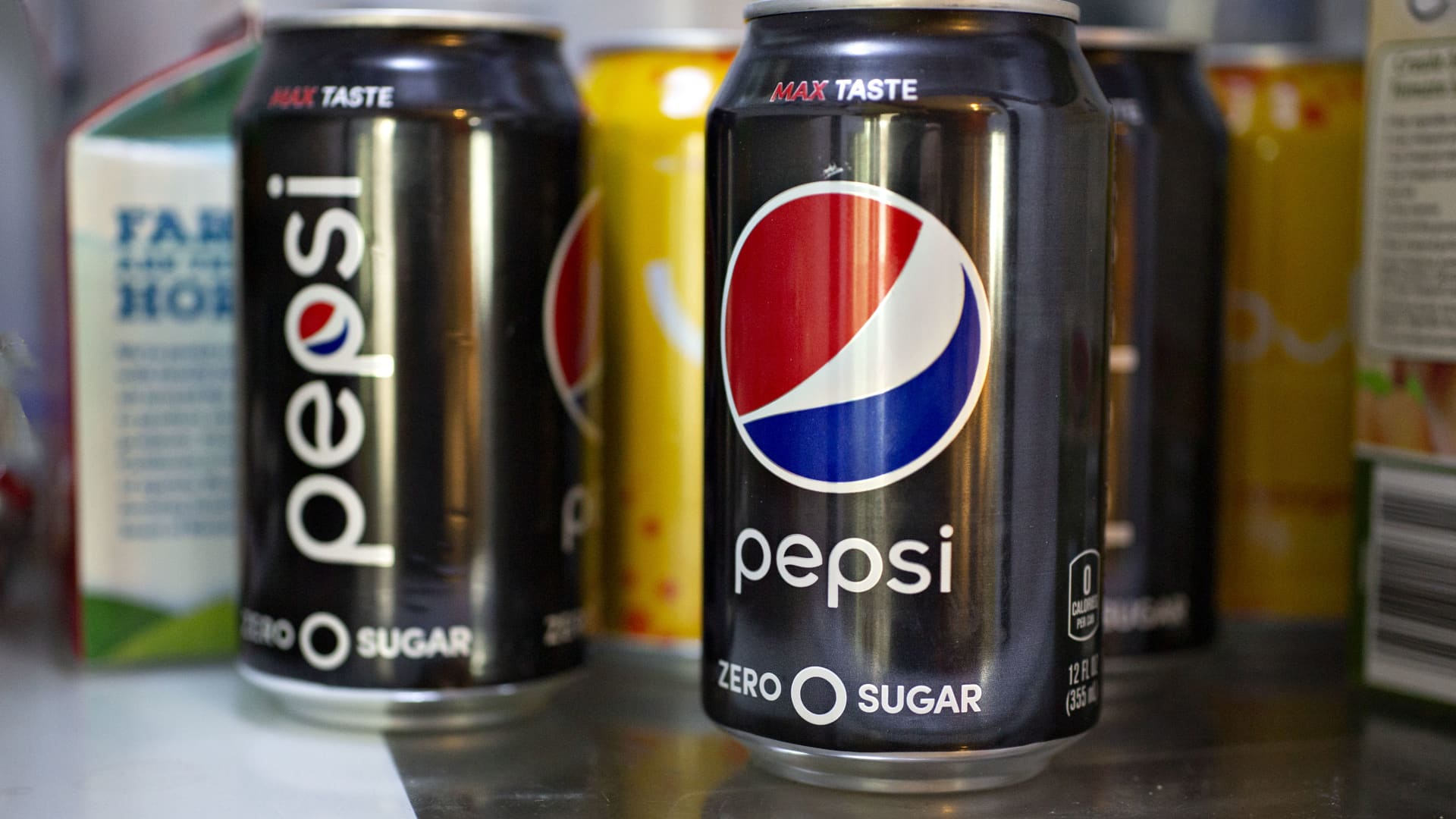
Cans of PepsiCo’s Pepsi Zero Sugar soda are displayed for an arranged photograph taken in Tiskilwa, Illinois, on Wednesday, April 17, 2019.
Daniel Acker | Bloomberg | Getty Images
The U.S. Food and Drug Administration disagrees with a World Health Organization finding that the widely used soda sweetener aspartame possibly causes cancer in humans, saying the studies used to reach that conclusion had “significant shortcomings.”
“Aspartame is one of the most studied food additives in the human food supply. FDA scientists do not have safety concerns when aspartame is used under the approved conditions,” an agency spokesperson said late Thursday shortly after the WHO released its findings.
The International Agency for Research on Cancer, a WHO body, found a possible link between aspartame and a type of liver cancer called hepatocellular carcinoma after reviewing three large human studies in the U.S. and Europe.
Aspartame is used as a substitute for sugar in about 6,000 products worldwide, according to the Calorie Control Council, a trade group that represents the manufacturers of artificial sweeteners.
Artificially sweetened beverages have historically been the biggest source of exposure to aspartame. The sugar substitute is used in diet sodas such as Diet Coke and Pepsi Zero Sugar.
Aspartame is widely used because it is 200 times sweeter than sugar, which means beverages containing the substitute taste similar to products with sugar, but have a lower calorie count.
Dr. Mary Schubauer-Berigan, a senior official at IARC, emphasized that the WHO classification of aspartame as a possible carcinogen is based on limited evidence.
Schubauer-Berigan acknowledged during a press conference with journalists Wednesday that the studies could contain flaws that skewed the results. She said the classification should be viewed as a call to conduct more research into whether aspartame can cause cancer in humans.
“This shouldn’t really be taken as a direct statement that indicates that there is a known cancer hazard from consuming aspartame,” Schubauer-Berigan said.
The FDA spokesperson said the classification of aspartame as “possibly carcinogenic to humans” does not mean the sugar substitute is actually linked to cancer. Health Canada and the European Food Safety Authority have also concluded that aspartame is safe at the current permitted levels, the spokesperson said.
A separate body of international scientists called the Joint Expert Committee on Food Additives said Thursday that the evidence of an association between aspartame and cancer in humans is not convincing. JECFA is an international group made up of scientists from the WHO and the U.N. Food and Agriculture Organization.
JECFA makes recommendations about how much of a product people can safely consume. The organization maintained its recommendation that it is safe for a person to consume 40 milligrams of aspartame per kilogram of body weight daily during their lifetime.
An adult who weighs 70 kilograms, or 154 pounds, would have to drink more than nine to 14 cans of aspartame-containing soda daily to exceed the limit and potentially face health risks.
The U.S. Health and Human Services Department told the WHO in an August 2022 letter that JECFA is better suited to provide public health recommendations about the safety of aspartame in food.
This is because JECFA reviews all available data, both public and private proprietary information, whereas the IARC only looks at public data.
“Thus, an IARC review of aspartame, by comparison, would be incomplete and its conclusion could be confusing to consumers,” Mara Burr, who heads the HHS office of multilateral relations, wrote in the letter.
The FDA has a slightly higher recommendation than JECFA and says it is safe for a person to consume 50 milligrams of aspartame per kilogram of body weight daily during their lifetime. A person who weighs 132 pounds would have to consume 75 packets of aspartame per day to reach this limit.







